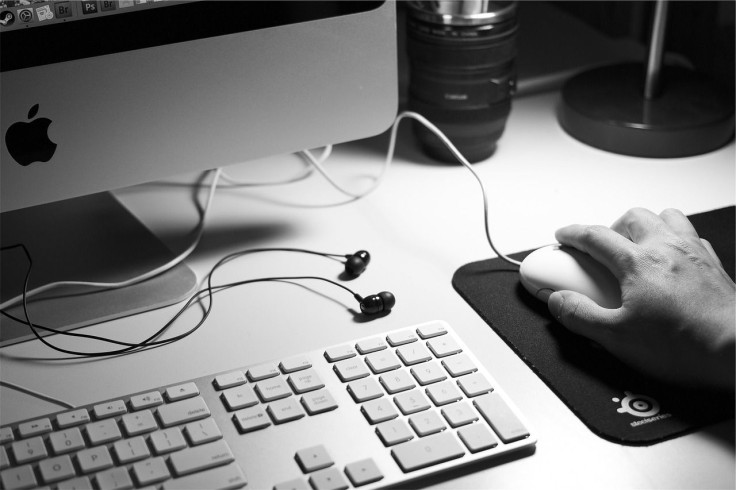The Mappiness App Finds If People Are Sick In Bed Or Working, They Are Unhappy

Each day, the average American spends about 8.9 hours at work, amounting to about 44 hours a week. According to the Bureau of Labor Statistics, that’s more time than any other activity we do each day. For all the time we spend at work, you’d think we’d all be doing something we like. But new research from the UK finds that, aside from being sick, being at work results in the least happiness.
Researchers from the University of Sussex and London School of Economics used an app called Mappiness to find how happy people were at random times of the day. The app randomly sends users to questions about what they’re currently doing and how they’re feeling. Over a million responses were included in the study, which revealed that after being sick, being at work caused the least happiness. Being at work caused happiness levels to drop up to 8 percent compared to other activities outside of the office, the study found.
"Although we may be positive about our jobs when reflecting on the meaning and purpose they give us, and the money they provide, actually engaging in paid work comes at a significant psychological cost,” said Mappiness creator Dr. George MacKerron, an economist at the University of Sussex, in a press release. "It appears that work is highly negatively associated with momentary wellbeing — work really is disutility, as economists have traditionally assumed. At any given moment, we would rather be doing almost anything else."
Mappiness has been used to monitor happiness among thousands of UK citizens since it was released in 2010. The app sends notifications to users’ phones up to five times a day, and asks them to answer short surveys in which they rate how happy, relaxed, and awake they are. It also asked them who they were with, if they were outdoors or indoors, where they were, and what they were doing. Sending random messages allowed the researchers to get a more accurate measure since respondents answered “in the moment, before they [got] a chance to reach for their rose-tinted glasses,” MacKerron said.
A recent Gallup poll found as many as 70 percent of employees in the U.S. weren’t happy with their job (millennials made up the biggest portion of this group). These respondents said they didn’t feel involved or enthusiastic about their work or the workplace, and Gallup suggested millennials were particularly unhappy because they felt they couldn’t use their talents and strengths to their full potential. Add work-related pressures to the mix and it wouldn’t be surprising for the anxiety and stress MacKerron found among his participants to arise.
Aside from work, the team also found waiting in line, managing finances, sitting in meetings or class, and commuting were the most likely to make people miserable. Conversely, having sex made people the happiest, conferring a 14 percent jump in overall happiness when compared to those who weren’t having sex. Among the other activities the team found make people miserable included waiting in line, doing their finances, sitting in meetings or classes, and commuting.
There are ways to make the workplace a bit happier; first, try keeping flexible hours, as it’ll improve your chances of getting better quality sleep (we all feel better after a good night’s rest). If that doesn’t work, taking breaks to play a quick game on your phone can (somehow) enhance your productivity, while creating friendships in the workplace has been shown to make things just a bit easier.
Source: Bryson A, MacKerron G. Are You Happy While At Work? The Economic Journal. 2016.



























